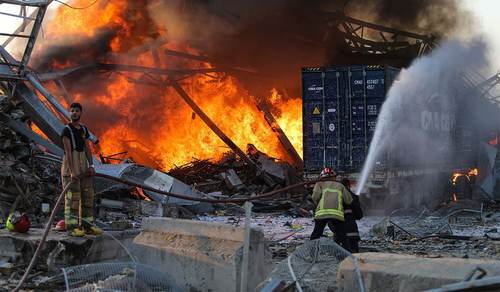Last August, I wrote about the tragic explosion in Beirut, Lebanon and how this horrible event might have been avoided through the proper use of English. During a recent lesson, one of my students mentioned this article as we were discussing homonyms (English words that sound alike but have very different meanings). Consequently, I have decided to repost the original article.
The Beirut Explosion and Why Correct English is Important
I’m certain you have all heard of the huge explosion which decimated Beirut, Lebanon. In a circle extending nearly 2 miles from the blast’s center, buildings were either completely flattened or totally ruined and made uninhabitable. Extensive damage was caused to other structures as far away as 6 miles from the blast point. So, what does this tragedy have to do with the proper use of English?
The English language is full of words that look and sound very similar, but whose meaning is quite different. Such words are called “homonyms”, and they can be confusing even to native speakers. This was exactly the case in one instance related to the explosion.
Several local Beirut port officers had written warnings about the dangerous material (ammonium nitrate) stored in a waterfront warehouse. In one instance, such a warning was translated into English and circulated among Beirut’s English-speaking merchant community. A portion of that translation stated:
“… an intimate explosion is possible.”
The English word “intimate” means “very personal” or restricted to a small area (as in an “intimate restaurant”). So, what the memo actually said was that a “small” explosion was possible!
The author meant to use the word “imminent,” which means an event likely to occur at any moment. In other words, the potential for disaster was very high!
Had the writer chosen the proper word, would it have made a difference? Would the disaster have been avoided? We will never know….



 English
English 日本語
日本語 中文(简体)
中文(简体) 中文(繁體)
中文(繁體) 한국어
한국어 Italiano
Italiano español
español Deutsch
Deutsch Русский
Русский



